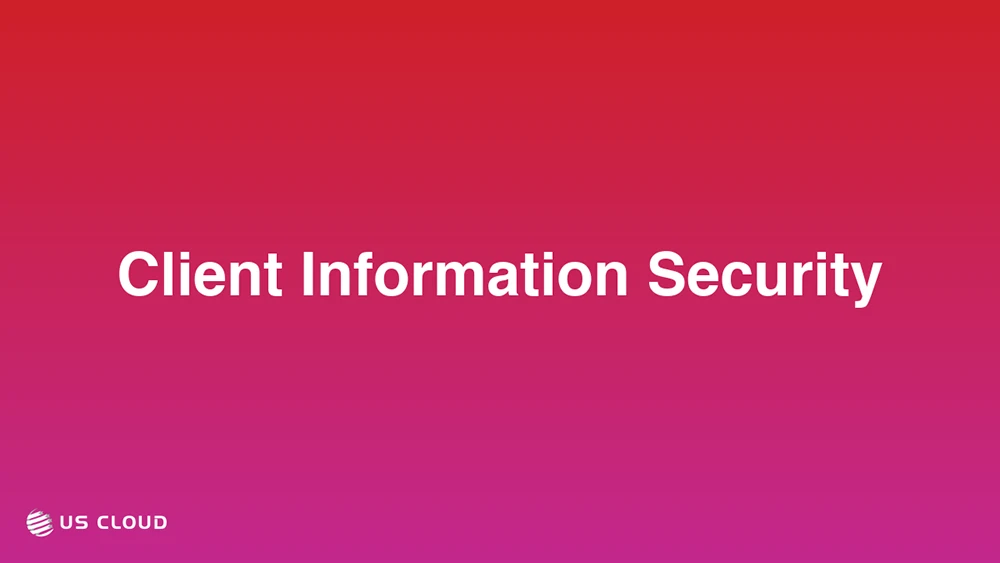Client Information Security.

What is Client Information Security?
Client Information Security refers to the comprehensive set of measures and practices implemented by IT support services to protect sensitive client data from unauthorized access, breaches, and cyber threats. It is a critical component of modern IT support, ensuring that client information remains confidential, intact, and available only to authorized personnel.
At its core, Client Information Security encompasses:
- Data encryption protocols
- Access control mechanisms
- Regular security audits
- Ongoing staff training on data handling
- Advanced threat detection systems
- Secure communication channels
- Incident response planning
The primary goal of Client Information Security is to maintain the CIA triad: Confidentiality, Integrity, and Availability of client data. This approach not only protects sensitive information but also builds trust between IT support providers and their clients.
Key Components of Client Information Security
Effective Client Information Security relies on several interconnected components working in harmony. Each element plays a crucial role in creating a robust security framework that can withstand evolving cyber threats.
Data Encryption: Encryption is the first line of defense in protecting client data. It involves converting information into a code that can only be deciphered with the correct encryption key. This ensures that even if data is intercepted, it remains unreadable and secure.
Access Control: Implementing strict access controls ensures that only authorized personnel can view or modify client data. This includes:
- Multi-factor authentication
- Role-based access control
- Regular access audits
Security Audits: Regular security audits help identify vulnerabilities in the IT support system. These audits should be comprehensive, covering:
- Network security
- Application security
- Physical security measures
- Compliance with industry standards and regulations
Best Practices for Implementing Client Information Security
Implementing robust Client Information Security requires a strategic approach and ongoing commitment. Here are some best practices that IT support services should follow:
Develop a Comprehensive Security Policy: Create a detailed security policy that outlines procedures for handling client data, incident response protocols, and employee responsibilities. This policy should be regularly reviewed and updated to address new threats and technologies.
Provide Ongoing Staff Training: Employees are often the weakest link in security. Regular training sessions on:
- Recognizing phishing attempts
- Proper data handling procedures
- Incident reporting protocols
can significantly reduce the risk of human error leading to security breaches.
Implement Layered Security: A multi-layered security approach provides multiple barriers against potential threats. This can include:
- Firewalls
- Intrusion detection systems
- Anti-malware software
- Data loss prevention tools
Regular System Updates and Patch Management: Keeping all systems and software up to date is crucial in protecting against known vulnerabilities. Implement a robust patch management system to ensure timely updates across all devices and applications.
Emerging Trends in Client Information Security
The landscape of Client Information Security is constantly evolving, driven by advancements in technology and the increasing sophistication of cyber threats. IT support services must stay ahead of these trends to provide the best possible protection for their clients.AI-Driven Threat Analysis: Artificial Intelligence and Machine Learning are revolutionizing threat detection and response. These technologies can:
- Analyze vast amounts of data to identify patterns indicative of potential threats
- Automate responses to common security incidents
- Predict and prevent future attacks based on historical data
Blockchain for Data Integrity: Blockchain technology is increasingly being explored for its potential in enhancing data integrity. Its decentralized nature and immutability make it an attractive option for:
- Secure record-keeping
- Transparent audit trails
- Enhanced protection against data tampering
Zero Trust Security Model: The Zero Trust model operates on the principle of “never trust, always verify.” This approach involves:
- Continuous authentication and authorization
- Micro-segmentation of networks
- Least privilege access
Conclusion
Client Information Security is a critical aspect of IT support services that cannot be overlooked. As cyber threats continue to evolve and become more sophisticated, the importance of robust security measures only grows. By implementing comprehensive security policies, leveraging advanced technologies, and fostering a culture of security awareness, IT support services can effectively protect their clients’ sensitive information.
The future of Client Information Security lies in adaptability and proactive measures. Embracing emerging technologies like AI and blockchain, while also adhering to tried-and-true security practices, will be key to staying ahead of potential threats. Ultimately, the goal is not just to react to security incidents, but to prevent them from occurring in the first place, thereby maintaining the trust and confidence of clients in an increasingly digital world.
